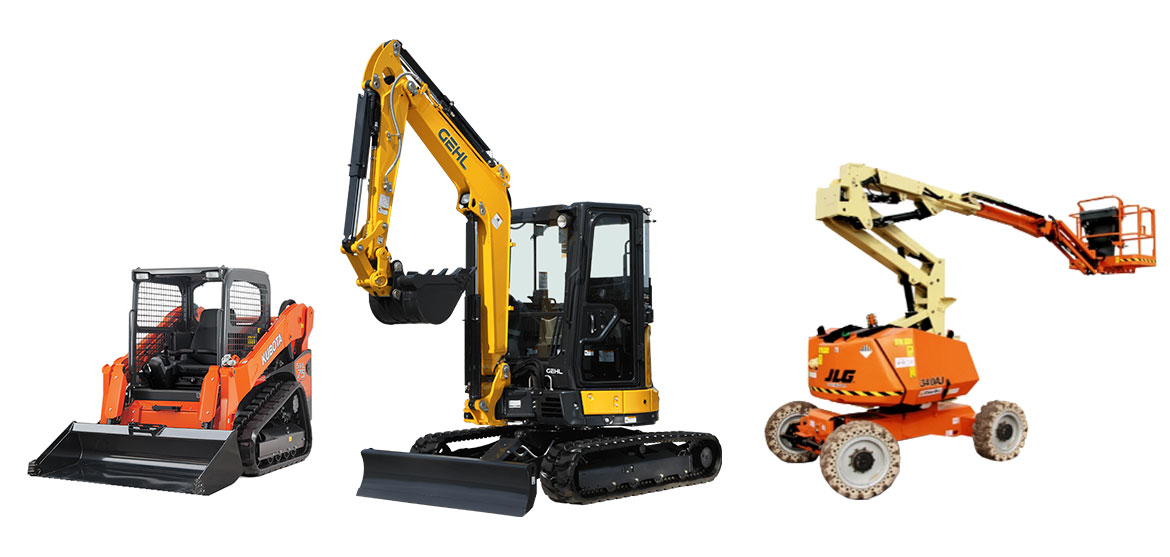Optimize Your Budget Plan by Understanding the Expenses Linked With Building And Construction Tools Services
Understanding the full extent of prices connected with construction equipment services is crucial for optimizing your budget plan. What strategies can be used to properly handle these prices and make certain an extra reliable rental experience?
Introduction of Rental Expenses
When taking into consideration building devices leasings, comprehending the linked costs is critical for effective budgeting and task preparation. Rental costs can vary substantially based upon a number of aspects, including equipment kind, period of service, and location. The preliminary rental charge often mirrors the equipment's market need and its associated operational capacities, affecting the total expense.
Along with the base rental price, supplementary costs may occur, such as transport costs, fuel surcharges, and maintenance costs. It is vital to represent these extra costs to accurately assess the total cost of renting tools. The rental period can influence rates; longer rentals may certify for discounted prices, while short-term rentals may sustain greater day-to-day fees.

Failure of Rental Rates
An extensive understanding of rental prices is necessary for contractors and project supervisors aiming to optimize their budget plans. Rental prices for construction devices typically consist of several parts, consisting of base prices, time-based fees, and use costs.
Base rates are the core costs related to the service of the tools, often established by the kind and dimension of the machinery. These prices can differ significantly, influenced by aspects such as tools need, accessibility, and regional market fads. Time-based fees, which might be daily, weekly, or monthly, serve to accommodate different task timelines and rental durations.
Additionally, rental rates might consist of usage fees, which are applicable when equipment is made use of beyond a defined threshold, making sure that the rental company can make up wear and tear. Seasonal demand variations can additionally affect rental rates, with peak building seasons generally commanding greater rates.
Moreover, understanding the rental firm's plans relating to upkeep and insurance policy can offer further insight into the total price framework. By examining these components, contractors can make enlightened choices, ensuring the choice of rental equipment straightens with both project needs and budget restrictions.
Added Charges to Consider
Recognizing the ins and outs of additional fees is important for specialists to handle their general rental expenditures efficiently. Beyond the typical rental prices, different auxiliary costs can substantially affect the total cost of equipment rental. These fees usually consist of distribution and pick-up charges, which can vary based upon range and logistics associated with transferring the tools to and from the work site.
In addition, some rental companies may impose gas surcharges if the equipment is returned with less fuel than when leased. It is likewise necessary to be conscious of potential cleansing fees, especially for specialized devices that needs thorough maintenance after use.

Extensively examining the rental contract and clarifying these extra fees ahead of time can assist contractors make sure and prevent unanticipated prices that budget plans remain intact throughout the job lifecycle.
Upkeep and Repair Work Costs
Normal maintenance and repair costs are frequently neglected variables that can considerably affect the total price of building and construction equipment services. When renting out devices, it is crucial to think about not just the rental fees investigate this site but additionally the prospective expenses related to maintaining the equipment in optimum operating problem.
Several rental companies consist of basic upkeep as part of the rental contract; nevertheless, a lot more substantial repairs or unexpected breakdowns can lead to added expenses. It's important to examine the rental contract meticulously to understand what upkeep solutions are covered and what responsibilities drop on the renter.
Furthermore, equipment that is not well-maintained can lead to inefficiencies on duty site, possibly boosting and causing delays project prices. To reduce these risks, it is a good idea to carry out normal assessments and maintain open communication with the rental copyright concerning any type of issues that develop throughout usage.
Insurance and Liability Costs
Insurance coverage and responsibility expenses are critical elements that can significantly influence the overall cost of building and construction tools rentals (scissor lift rental). These costs guarantee that both the rental company and the client are secured from prospective economic losses arising from mishaps, damage, or theft throughout the rental duration

In addition, customers need to understand any kind of deductibles or exclusions in the insurance coverage, as these can impact potential out-of-pocket expenses. Comprehending the conditions of any type of insurance protection is important to prevent unexpected costs. Eventually, budgeting for insurance coverage and liability costs can aid guarantee a smoother rental experience and secure versus monetary threats connected with building and construction projects.
Verdict
In verdict, a comprehensive understanding of the expenses associated with construction tools services is important for efficient spending plan administration. Ultimately, notified decision-making pertaining to equipment services contributes to the general success of building ventures.
Rental costs can differ significantly based on numerous factors, consisting of equipment kind, period of leasing, and area (aerial lift rental). The rental period can influence rates; longer services might certify for discounted rates, while short-term services might incur greater daily charges
By performing thorough study and engaging with respectable rental companies, contractors can successfully navigate the intricacies of rental rates, ultimately optimizing their monetary check my blog resources.
Beyond the conventional rental rates, my explanation various supplemental fees can significantly impact the total expense of tools service. Rental business typically provide responsibility insurance policy that covers injuries to third parties or damage to residential property, while devices damage insurance policy can cover the expense of repairs or replacement if the rented out equipment is damaged.